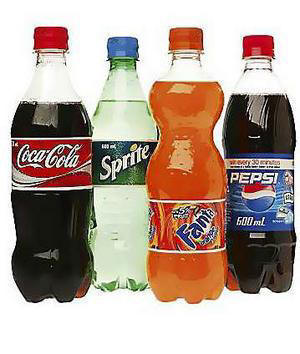Sweeten Your Tea?
"Regular consumption of sugar-sweetened beverages is associated with elevated cardiovascular disease mortality."
Journal of the American Medical Association (JAMA), February 2014
"The available evidence did not support a single quantitative sugar guideline covering all health issues."
Critical Reviews in Food Science and Nutrition British journal
"People fed sweet white sugar diets were not shown to have any greater likelihood of any real heart disease than people fed 'healthy' brown grains and fibre."
Dr. John Sloan, clinical professor, Department of Family Practise, University of British Columbia, author of Delusion for Dinner: Unmasking the Myth of Healthy Eating
"No association between weight change and consumption of sweets or cake was seen."
"No associations were seen between long-term consumption of sugar-sweetened soda beverages and overweight or obese status."
2013 meta-analysis WHO-funded British Medical Journal
 |
| wordpress.com |
Government could have responded, by recognizing an opportunity to pose as public-health-conscious while imposing taxes on sugar-heavy products to persuade Canadians that the better course of safety is to avoid excess sugar consumption. That hasn't happened, and likely it will not. The media had a ball with it, though. It was an attention-grabber, it did make people who use copious amounts of sugar at the table -- sweetener for hot beverages, fruit, baked goods come to mind -- feel exceedingly guilty.
 |
| cupcakemojo.com |
Sugar use as a furtive, societal-unapproved activity?
The World Health Organization responded by urging consumers to radically change their sugar-addiction habits for the good of their short- and long-term health and that of their families. The U.S. Institute of Medicine's recommendation for sugar use puts it at a maximum of 25% of daily calories derived from sugar consumption. Canada's food guide simply recommends balanced moderation. Which may mean many things to many people, sensible awareness among them.
At an informed guess Canadian consumption of added sugars (setting aside naturally occurring fructose in fruit and juices) reasonably would rate at between 11% to 13%. Moreover, a recent study out of Canada found "added sugar intakes have been stable or modestly declining ... over the past three decades." Soft drinks are singled out comprising the largest source of sugar in the American diet, emphasized the JAMA article. But in Canada soft drinks like soda and pop are less popular than in the U.S.
In Canada the top three beverages of choice are water, coffee and milk. Canadians tend to consume less than half of their sugar from soft drinks as compared to Americans. While the JAMA article followed diet diaries of thousands of Americans to conclude that people who took over 25% of their daily calories from sugar tripled their risk of dying of heart disease. However, the JAMA article's insistence of a connection between heart disease and soda seems to be contradicted by their own raw data.
The almost twelve thousand participants in the study over 18 years had been divided into distinct groups based on weekly soda consumption; ranging from less than one can of pop daily to more than one a day. Among the less-than-once-a-day groups 468 deaths occurred from heart disease, while a similar sized group of once-a-day pop consumption came out with 183 deaths. Does that make sense? If the more sugar one ingests, the more dangerous to health it becomes?
British researchers examining countless randomized controlled tests searching allegations made disfavouring sugar -- that it leads to a metabolic syndrome resulting in obesity, high blood pressure and high cholesterol, diabetes and stroke -- came up with no impact related to sugar consumption even when patients consumed almost half their total calories in sugar. Studies searching to relate sugar and cancer, depression and dementia similarly turned up no connection.
The reality appears to be that in Canada both sugar consumption and health disease are in decline mode.
Labels: Biochemistry, Bioscience, Health, Medical Technology

0 Comments:
Post a Comment
<< Home